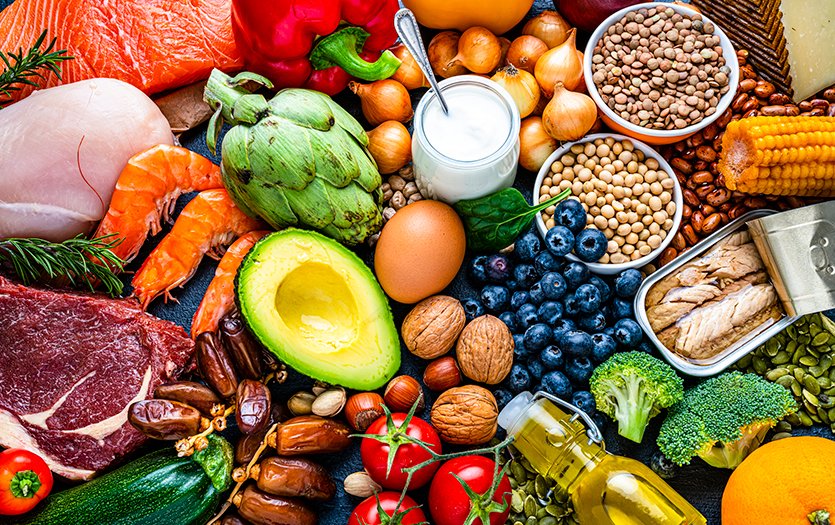
This post was written based on a recent appearance on the television show PBS HealthLine by Parkview Health’s Adrianne Kartholl, RDN, a clinical dietitian, and Kayleigh Shoaff, RDN, a clinical dietitian.
The internet is filled with endless health and nutrition advice, but nothing beats the guidance and support of a trusted registered dietitian. In this post, we will discuss his three aspects of nutrition that have been brought up to us recently: protein drinks as meal replacements, why all carbohydrates are not the same, and kidney stones.
Which high-carbohydrate foods should you cut back on?
Carbohydrates aren’t inherently bad. Our bodies need them. When considering the types of foods you should be wary of, you need to look at their source. Foods such as bread, pasta, and rice naturally contain carbohydrates. Naturally occurring carbohydrates contain natural sugars, and our bodies know how to utilize natural sugars better than added sugars. Foods high in sugar, such as cookies and ice cream, should be limited.
Learn more about carbohydrates below.
Why I’m on a low-carb diet: A doctor’s journey to better health
Starchy vegetables: friend or foe?
Carb counting 101
Are carbohydrates good or bad?
Are protein shakes a healthy meal replacement?
Although protein drinks are a valuable source of protein, it is essential to consider the drink’s other nutritional content. How much fat, sugar, and fiber does the product contain? It’s understandable to rely on protein shakes as a quick meal replacement on the go, but think of them as a supplement rather than an entire meal replacement. It’s more beneficial. Adding pieces of fruit or nuts will increase the amount of healthy fats and fiber, which will keep you feeling full for longer.
Learn more about protein:
Which is better for protein, powder or food?
How to get the most out of protein bars and powders
Try changing your protein sources to improve your health
What foods should you avoid if you have kidney stones?
Dietary changes to prevent or reduce kidney stones largely depend on the type of stone you are dealing with. It is best to consult your health care provider, nephrologist, or urologist for personalized recommendations for stone treatment. In general, be sure to drink plenty of water to dilute the waste products in your urine that cause kidney stones to form.
Hydration details:
Why we become dehydrated
There is a surprising correlation between water consumption and lifespan.
Hydration is important in winter
How to drink well
Looking for more nutrition insights?
Book your free one-time Ask a Dietitian session at our Healthy Living Center. Take this call to receive education and guidance for better nutrition, improved lifestyle habits, and improved overall well-being. To schedule your free Ask a Nutritionist session, call 260-266-6500 or toll-free 844-835-0003 for more information.

